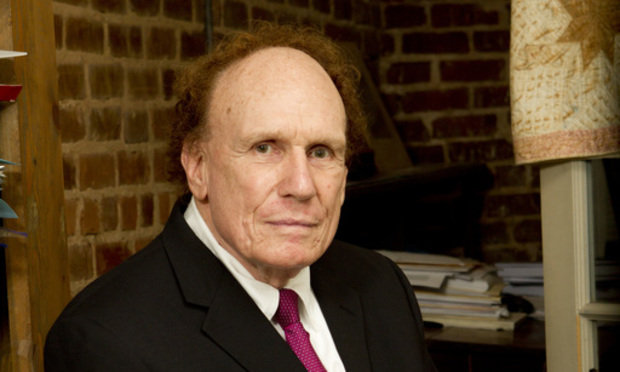'Only Appropriate Sanction': Ga. Supreme Court Disbars Millard Farmer
Millard Farmer's 52-year legal career ended Monday when the Supreme Court of Georgia disbarred him following a 2018 federal racketeering trial.
November 04, 2019 at 03:54 PM
5 minute read
 Millard Farmer. (Photo: John Disney/ALM)
Millard Farmer. (Photo: John Disney/ALM)
Atlanta attorney Millard Farmer—who built his legal career as an aggressive and often controversial civil rights lawyer and death penalty foe—has been disbarred by the Supreme Court of Georgia.
The high court formally disbarred Farmer on Monday, finding that he engaged in "an extensive pattern of disciplinary infractions" during the course of representing a client in a long-running child custody case that made disbarment "the only appropriate sanction."
Farmer's conduct in the protracted custody battle between Michelle Murphy and her former husband, John Murphy, prompted John Murphy to sue Farmer in 2015. Murphy's suit contended that Farmer perverted the legal process and crossed a line into organized criminal behavior in an effort to extort payments from Murphy and his second wife, the founder and chief financial officer of a New York hedge fund.
After a weeklong trial last year, a federal jury in Atlanta determined that Farmer engaged in attempted theft by extortion, attempted bribery, intimidation of a court officer, influencing witnesses, interstate travel in aid of racketeering and interference with custody, and awarded John Murphy $242,835 in damages. Farmer, who was admitted to the State Bar of Georgia in 1967, represented himself.
In disbarring Farmer, the Supreme Court said he violated 10 professional conduct rules. The high court also listed "multiple aggravating factors," including Farmer's "intentional noncompliance" with bar disciplinary proceedings, his mischaracterization of the facts, his "selfish" motives, his refusal to acknowledge the wrongful nature of his conduct, his substantial experience in the practice of law and his "apparent indifference to restitution" after Farmer failed to satisfy the racketeering judgment.
The high court's opinion also noted evidence that Farmer told Michelle Murphy that he wouldn't dismiss the custody case or permit her to mediate it unless he was paid $500,000 in legal fees.
The high court said that was the basis for the racketeering case after Farmer employed a tactic he branded as "conflictineering." That methodology was intended to disrupt the judicial process "to the point that either the court or the opposing party would simply capitulate for the sake of restoring order," the high court held.
According to the disbarment ruling, in litigating the Murphy custody case, Farmer repeatedly filed frivolous motions, pursued baseless appeals, and routinely attacked the parties, the trial judge, the court staff and other participants in the litigation who took positions contrary to his client.
At one point, Farmer sued the trial judge's court reporter after filing a professional grievance against her, and accused the trial judge of bias and corruption. Those complaints were all dismissed.
According to the high court, Farmer also threatened witnesses at least twice and revealed confidential information that one expert witness, a former client of Farmer's, disclosed to him while he was representing her.
The high court also noted that Farmer, after filing an answer to the bar complaint that didn't comply with bar rules, stopped participating in the disciplinary proceedings.
In 2015, the State Bar of Georgia dismissed an earlier complaint that John Murphy filed against Farmer, claiming the custody case on which the complaint was based was still in litigation. But Buddy Parker, John Murphy's attorney in the racketeering case, said at the time that Murphy would refile the bar complaint once the custody case was resolved.
On Monday, Farmer called the bar disciplinary process "dishonest" and said his disbarment was "a byproduct of the illegal conduct of various entities, including judges, opposing counsel, and bar investigators.
"What aggravated them is that I represented a person who was not allowed her rights," he said.
After filing a response to John Murphy's renewed bar complaint, Farmer claimed he was "forced out" of ongoing disciplinary procedure "because I was not going to subject myself to being disciplined by an illegal process."
Farmer also said that allegations that he sought $500,000 in legal fees were "false statements." Instead, he insisted that he represented Michelle Murphy pro bono.
Farmer also said that he surrendered the house he and his wife owned and his law office to satisfy the racketeering judgment.
On Monday, Parker said that Farmer "intentionally caused much emotional pain and anguish to many people in his effort to 'shake down' and extort monies" and damage reputations of those he viewed as opponents.
Parker said Farmer's victims included "a wholly innocent court reporter just doing her job who Millard caused to be criminally investigated and whose career was threatened," and the Superior Court judge who presided over the custody case that Parker said Millard disparaged.
This content has been archived. It is available through our partners, LexisNexis® and Bloomberg Law.
To view this content, please continue to their sites.
Not a Lexis Subscriber?
Subscribe Now
Not a Bloomberg Law Subscriber?
Subscribe Now
NOT FOR REPRINT
© 2025 ALM Global, LLC, All Rights Reserved. Request academic re-use from www.copyright.com. All other uses, submit a request to [email protected]. For more information visit Asset & Logo Licensing.
You Might Like
View All
Veteran Litigators Move From Sidley Austin to Alston & Bird's New Chicago Office
3 minute read
'Pushed Into Oncoming Traffic': $5.85M Settlement in Mediated Auto Tort
6 minute read
Justice Known for Asking 'Tough Questions' Resolves to Improve Civility
4 minute read
'Nerve-Wracking': Fires Disrupting but Not Halting Work of Distributed Firms' LA Lawyers
3 minute readTrending Stories
- 1'There's Always More to Be Done': Former US Attorney Breon Peace Reflects on Series of Firsts at EDNY
- 2Former Thomas Clerk Sarah Harris to Serve as Acting Solicitor General
- 3Coral Gables Firm Secures $26M Settlement
- 4Trump's Second Term Spurs Unusual Alliances Between US and European Law Firms
- 5Honored by NYSBA, 2nd Circuit Chief Judge Livingston's Remarks Stress Judicial Safety
Who Got The Work
J. Brugh Lower of Gibbons has entered an appearance for industrial equipment supplier Devco Corporation in a pending trademark infringement lawsuit. The suit, accusing the defendant of selling knock-off Graco products, was filed Dec. 18 in New Jersey District Court by Rivkin Radler on behalf of Graco Inc. and Graco Minnesota. The case, assigned to U.S. District Judge Zahid N. Quraishi, is 3:24-cv-11294, Graco Inc. et al v. Devco Corporation.
Who Got The Work
Rebecca Maller-Stein and Kent A. Yalowitz of Arnold & Porter Kaye Scholer have entered their appearances for Hanaco Venture Capital and its executives, Lior Prosor and David Frankel, in a pending securities lawsuit. The action, filed on Dec. 24 in New York Southern District Court by Zell, Aron & Co. on behalf of Goldeneye Advisors, accuses the defendants of negligently and fraudulently managing the plaintiff's $1 million investment. The case, assigned to U.S. District Judge Vernon S. Broderick, is 1:24-cv-09918, Goldeneye Advisors, LLC v. Hanaco Venture Capital, Ltd. et al.
Who Got The Work
Attorneys from A&O Shearman has stepped in as defense counsel for Toronto-Dominion Bank and other defendants in a pending securities class action. The suit, filed Dec. 11 in New York Southern District Court by Bleichmar Fonti & Auld, accuses the defendants of concealing the bank's 'pervasive' deficiencies in regards to its compliance with the Bank Secrecy Act and the quality of its anti-money laundering controls. The case, assigned to U.S. District Judge Arun Subramanian, is 1:24-cv-09445, Gonzalez v. The Toronto-Dominion Bank et al.
Who Got The Work
Crown Castle International, a Pennsylvania company providing shared communications infrastructure, has turned to Luke D. Wolf of Gordon Rees Scully Mansukhani to fend off a pending breach-of-contract lawsuit. The court action, filed Nov. 25 in Michigan Eastern District Court by Hooper Hathaway PC on behalf of The Town Residences LLC, accuses Crown Castle of failing to transfer approximately $30,000 in utility payments from T-Mobile in breach of a roof-top lease and assignment agreement. The case, assigned to U.S. District Judge Susan K. Declercq, is 2:24-cv-13131, The Town Residences LLC v. T-Mobile US, Inc. et al.
Who Got The Work
Wilfred P. Coronato and Daniel M. Schwartz of McCarter & English have stepped in as defense counsel to Electrolux Home Products Inc. in a pending product liability lawsuit. The court action, filed Nov. 26 in New York Eastern District Court by Poulos Lopiccolo PC and Nagel Rice LLP on behalf of David Stern, alleges that the defendant's refrigerators’ drawers and shelving repeatedly break and fall apart within months after purchase. The case, assigned to U.S. District Judge Joan M. Azrack, is 2:24-cv-08204, Stern v. Electrolux Home Products, Inc.
Featured Firms
Law Offices of Gary Martin Hays & Associates, P.C.
(470) 294-1674
Law Offices of Mark E. Salomone
(857) 444-6468
Smith & Hassler
(713) 739-1250






